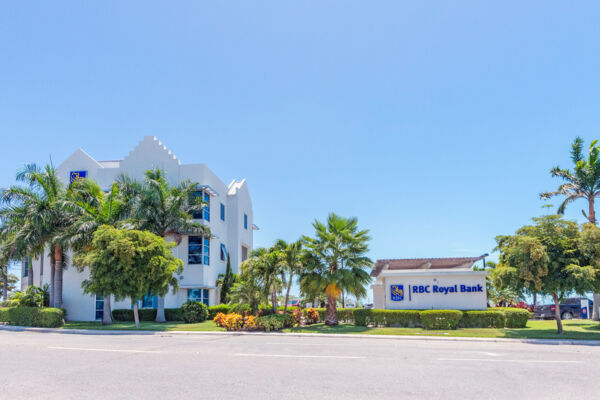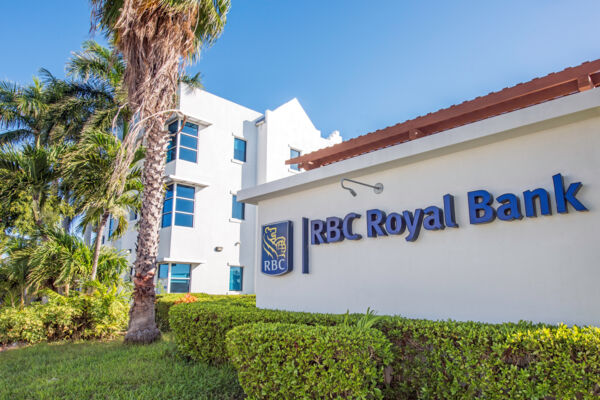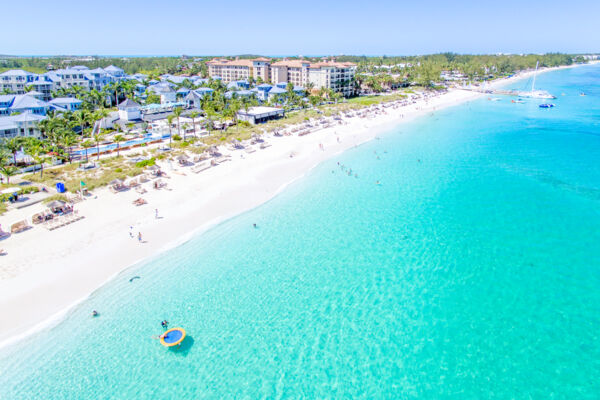Turks and Caicos Money, Currency & ATMs
The Turks and Caicos uses the US dollar.
Most businesses accept credit cards and debit cards.
There are few ATMs in the Turks and Caicos, and they are often dysfunctional.
US visitors should bring the cash they expect to use to the Turks and Caicos.
Most taxis and some smaller businesses may not accept credit or debit card payments.

The Turks and Caicos Islands uses the US dollar as its official currency. Whereas cards are widely accepted, acceptance is not universal, and it's common for card processing to be offline due to bank and IT issues. Before visiting, you’ll want to make sure you have enough cash on hand and available money to pay for transportation, meals, excursions, souvenirs, and other vacation expenses.
Cash Versus Card
Credit cards are widely accepted, and international credit cards such as Visa, Mastercard, and American Express can be used to make most purchases, as can Cirrus and Plus bank cards. Some businesses that are popular with tourists—such as the Ritz-Carlton and Shay Café—only accept credit cards, while others only accept cash, so it's recommended to carry both.
Smaller food and souvenir vendors and taxis typically only take cash, while most Turks and Caicos restaurants, stores, hotels, and many water sports companies accept credit card. Always carry cash—it’s common for card readers to go offline. Small bills are best, as businesses can struggle to get change for large banknotes if the nearest ATM is out of order.
If you’re visiting North Caicos, Middle Caicos, South Caicos, Grand Turk, or Salt Cay, plan to carry more cash. ATMs are non-existent on Middle Caicos and Salt Cay, and there are only a few ATMs on Grand Turk. Most vendors on these islands only accept cash.
Some taxis accept credit card, but most do not.
Foreign Exchange/Bureau de Change

There is no Foreign Exchange or Bureau de Change at the Providenciales International Airport (PLS) or anywhere in the country, apart from local banks. It's advisable to exchange foreign currency before arriving in the Turks and Caicos.
These banks can change some foreign currencies, including the British Pound, Euro, and Canadian dollar, to US dollars (USD). However, fees, long lines, and limited availability can make this a big hassle (bank queues can be over two hours).
ATMs can typically be used to withdraw US dollars via debit or credit card accounts that are in foreign currencies. This will typically incur a withdraw fee, as well as a conversion fee or cash advance fee.
ATMs
Providenciales has the majority of the country’s ATMs. Local ATMs can be found at the main grocery stores. In the Grace Bay area, two ATMs are found inside Graceway Gourmet. Unfortunately, local ATMs are frequently out of service, so if you’re running low on cash and see a working machine, use it while you can. Out of service ATMs will typically remain dysfunctional for hours or days. Withdraws from out-of-network banks may incur a $7 fee.
Making a cash withdraw at a local ATM will cost less than using a local bank to exchange currency. However, it’s best to check with your card issuer and bank ahead of time to determine the rate you will get. Credit cards with 0% foreign transaction fees are the best option.
North Caicos and South Caicos each have one ATM. There are a few on Grand Turk, and none on Salt Cay or Middle Caicos.
Armed robberies and muggings do occasionally happen in the Turks and Caicos Islands. Carry only the cash you need and don't use ATMs at night.
| ATM Locations in Turks and Caicos | |
| Island | Location |
| Providenciales | Providenciales Airport - Arrivals Hall |
| Providenciales | CIBC Caribbean Bank, Leeward Highway |
| Providenciales | Scotiabank, Leeward Highway |
| Providenciales | Royal Bank of Canada, Leeward Highway |
| Providenciales | Graceway IGA Supermarket, Leeward Highway |
| Providenciales | Graceway Gourmet Supermarket, Grace Bay |
| Providenciales | Graceway Smart Supermarket, Downtown |
| Providenciales | The Ritz-Carlton, Grace Bay |
| Grand Turk | Grand Turk Cruise Center |
| Grand Turk | CIBC Caribbean Bank, Cockburn Town |
| Grand Turk | Dickenson Office Complex, Waterloo Road |
| North Caicos | Hon. Paul Higgs Building, Bottle Creek |
| South Caicos | Super Value Supermarket, Cockburn Harbour |
Digital Payment Methods
A growing number of vendors in the Turks and Caicos now offer contactless payments, meaning you can use mobile payment services like Apple Pay and Google Pay to pay for goods and services.
While this is a new added convenience in the islands, it’s best not to rely on mobile payment services to pay your bill. Bring cash just in case.
Local Taxes and Fees

There are several taxes and fees you ought to be aware of to accurately determine the cost of meals, accommodation, and other expenses on your vacation.
The Turks and Caicos Government charges a mandatory tourist tax of 12% on all stays in the country (with the exception of Beaches and Club Med Turkoise, which charge 7.5%) as well as a 10% service charge. Some resorts also charge a 5% facility fee, so it's standard to pay 22–27% in taxes on accommodation.
It is mandatory for resort restaurants to apply a 10% service charge to all restaurant bills. Combined with the mandatory tourism tax, resort meals will incur a minimum of 22% tax. Offsite restaurants may also apply a service charge. Be sure to check your bill to see if the establishment has already added a gratuity before tipping.
You’ll likely also see the 12% tourist tax on any meals you consume, water sports activities and spa services that you book, and concierge services you use.
There is no general sales tax in the Turks and Caicos Islands (apart from the 12% tourism tax on services discussed above).
Tipping
Tipping is expected in the Turks and Caicos, and good service generally warrants a tip of 15–18%. In other words, if your bill already includes a 10% service charge, you’ll need to add 5–8% to make up the difference.
Cryptocurrency
Cryptocurrencies like Bitcoin and Ethereum are not accepted by businesses and merchants in the Turks and Caicos Islands. This is unlikely to change anytime soon.
Traveler's Cheques
Traveler's cheques are not used or accepted in the Turks and Caicos Islands.
Costs
The Turks and Caicos Islands is not a cheap travel destination, and prices here can be much higher than those in the United States and Canada. There is a high season and a low season for tourism in the islands, and accommodation prices typically fluctuate based on the time of year.
Food and grocery prices are high, especially for perishables and imported alcohol. Water sports excursions and activities will typically cost you $100 or more.
Financial Services
There is a small financial services sector in the Turks and Caicos that is focused primarily on real estate, company formation, and insurance. The islands enjoy a relatively stable political climate as a British Overseas Territory (as well as close proximity to the United States) and the official language is English, all of which makes the Turks and Caicos Islands attractive to many investors.
